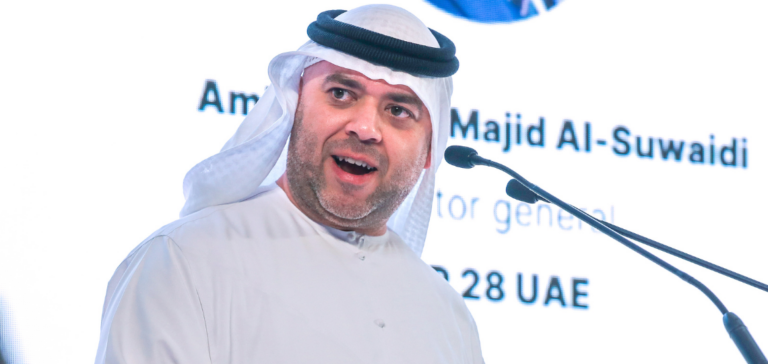The recent UN declaration underlines a growing concern: national and international climate targets are not on track. With the United Nations Framework Convention on Climate Change (UNFCCC) criticizing the “baby steps” of Nationally Determined Contributions (NDCs), COP28 in Dubai appears to be a crucial battleground for the future of the climate.
Breaking with Fossil Fuels: A Call from the UNFCCC
Simon Stiell, Executive Secretary of the UNFCCC, calls for a decisive break with dependence on fossil fuels, emphasizing the role of renewable energies in ensuring safe and affordable energy. Moreover, this statement comes against a backdrop of a cost-of-living crisis exacerbated by the volatility of oil, coal and gas prices.
COP28 in Dubai: A turning point in the fight against climate change
COP28 must mark a significant turning point, and governments must concretize stricter climate measures and demonstrate their implementation. The issue of phasing out fossil fuels is at the heart of the debate, pitting the interests of major oil producers against those calling for a managed but ambitious phase-out.
Issues and debates surrounding the elimination of fossil fuels
In a region where more than a third of the world’s oil exports are produced, COP28 is taking place under complex auspices. Sultan al-Jaber, President-designate of COP28 and CEO of the Abu Dhabi National Oil Company, occupies a singular position, embodying the tensions between oil interests and climate imperatives.
The Role of Major Oil Producers in COP28
Fatih Birol, head of the International Energy Agency, recognizes that the success of COP28 will depend heavily on the commitment of the major fossil fuel producers. The need to phase out fossil fuels is a constant refrain from the UNFCCC if we are to meet the Paris Agreement, which aims to limit global warming to 1.5 degrees Celsius above pre-industrial levels.
COP28 Global Review: Assessing Actions and Commitments
The importance of the global balance sheet at COP28 is crucial to regaining the momentum needed to step up global climate efforts. This assessment, central to the negotiations, evaluates the actions taken by countries and stakeholders to meet their commitments, outlining possible solutions up to 2050 and setting ambitious targets.
NDC Conditional Objectives and the Need for Action
According to the S&P Global Commodity Insights report, current commitments are insufficient to meet the Paris Agreement’s 1.5°C target. Indeed, emissions in 2030 should be only 2% below 2019 levels. If fully implemented, they would lead to a 9% reduction in emissions in 2030 compared to 2010 levels. The gap between current conditional NDC targets and a target aligned with Paris in 2030 is significant, estimated at around 16 GtCO2e.
COP28 Ambitions for the Energy Transition
To reach peak emissions before 2030, it is imperative to implement the conditional elements of the NDCs, dependent on access to improved financial resources, technology transfer and technical cooperation, as well as support for capacity building and the availability of market mechanisms.
In addition, Majid al-Suwaidi, Director General of COP28, stresses the importance of accelerating the energy transition, with ambitious targets such as tripling renewable capacity, doubling hydrogen capacity and energy efficiency, to decarbonize the current energy system while building the one of the future.
COP28 represents a crucial milestone in the global effort to combat climate change. However, the Dubai summit must deliver ambitious, measurable actions to close the existing gaps and accelerate the transition to more sustainable energies. World leaders must prove whether they will rise to the challenges posed by the objectives of the Paris Agreement, which the world is waiting to see.






















